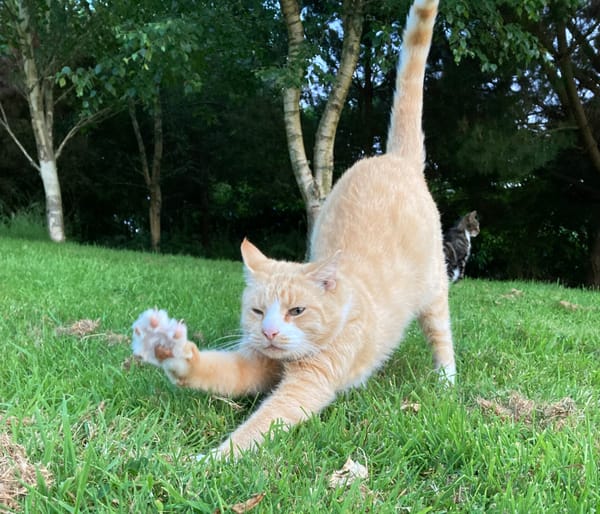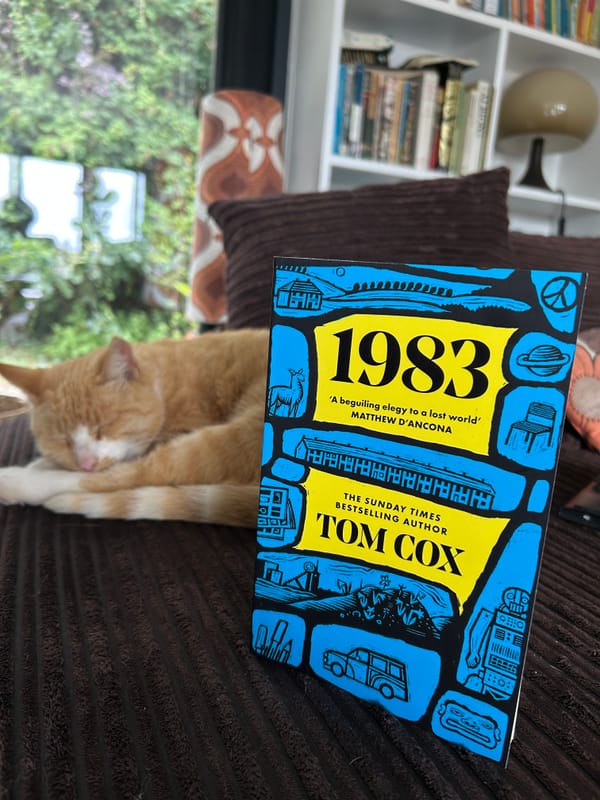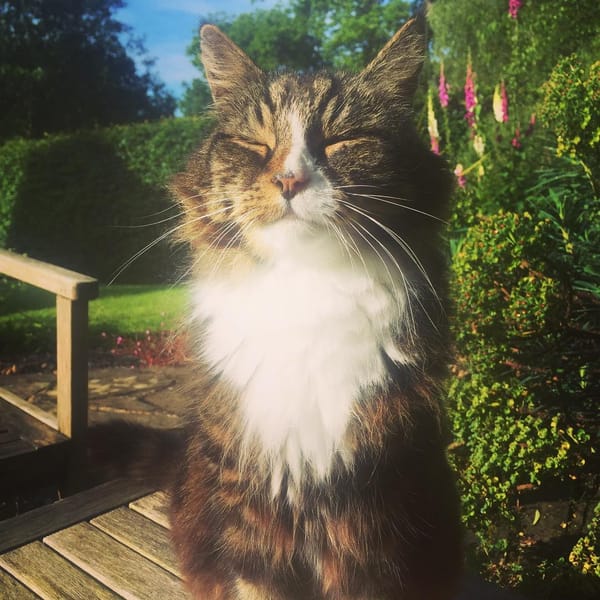The Sense Of An Ending
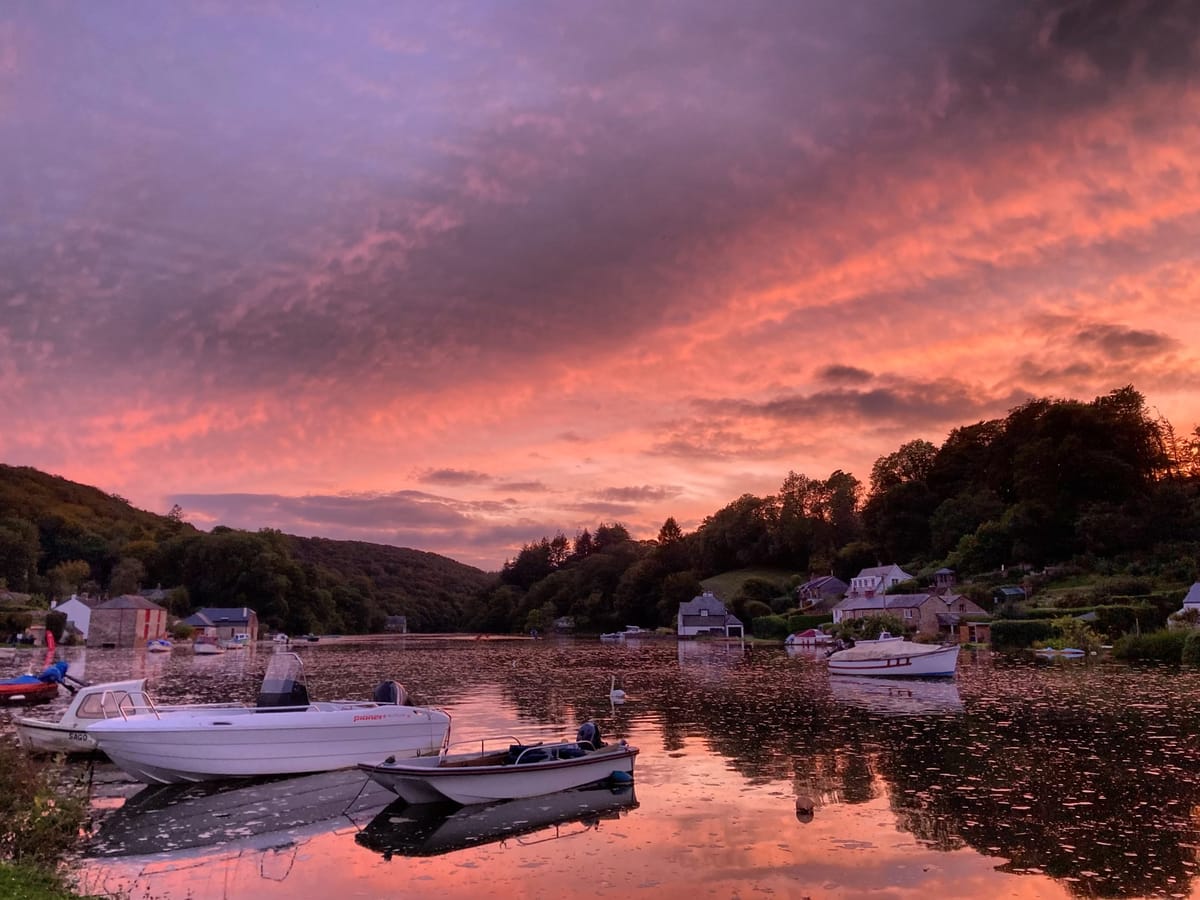
All of my recent Substack posts have been free but, as this is a long one, you need to be a paying subscriber to read it in its entirety. With this in mind, I’ve recently reduced my subscription costs, and I’m offering a free signed paperback of my novel Villager (RRP £12.99) to anyone who takes out the cut price annual subscription of £70.
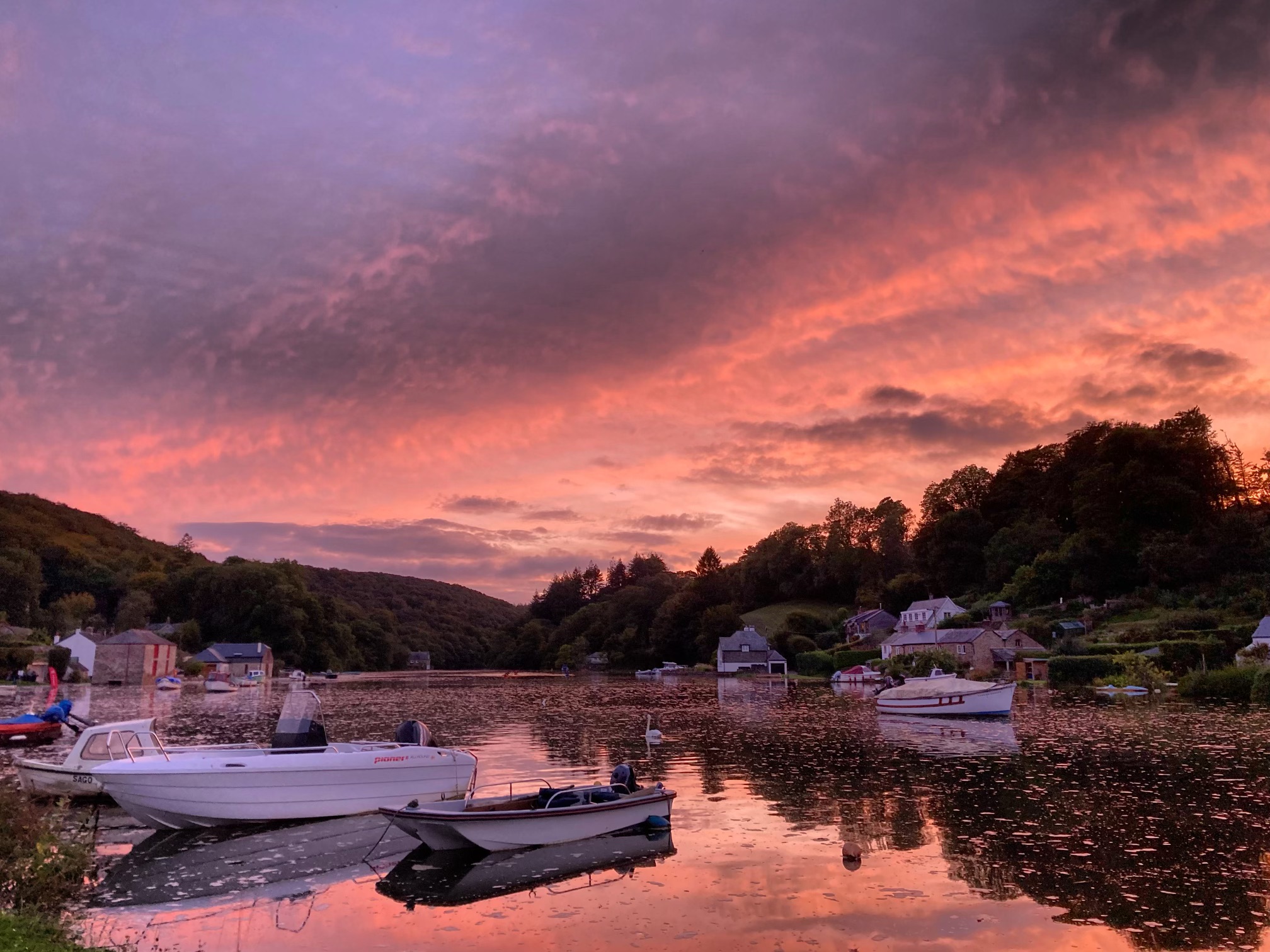
The creek crept up and spilled into the village the other day, just like it did exactly a year ago, shortly before we moved here. In the car park, a swan sailed serenely past a stupidly large marooned car, and the advancing pink dusk, reflected in all this water, made you feel like you were existing inside a shrinking bubble of air between all the beauty that might soon drown you. Cornwall, being a place where the moon’s gravitational pull is weak, has some of the highest tides on earth, especially in September, when its orbit moves towards its quadrature. The following evening, at around the same time, I went to my favourite cove and the water stood taller than I’d ever seen it. As I swam I looked down in wonder at pugnacious high rocks I’d often climbed, which were now fifteen feet below me. Fish from all around the world had apparently heard the news and timed their arrival perfectly. I have never in my life seen so many while swimming in the sea in the UK and doubt I will again. One especially plump one looked me curiously in the face with a big sad Disney eye and I wanted to denounce my pescatarian past there and then, maybe even pop a hairshirt on to prove just how guilty I felt. Meanwhile a thousand of its tiny contemporaries turned themselves into a giant predator and encircled me with their curving body. “This is actually happening,” I thought. “I am being waterstrangled by a big fake shark.” I’d have giggled girlishly if not for the fact that it would have put me in danger of choking and I was 100 or so yards out from the shore. I felt like the aquatic version of Lorraine Bracco in Goodfellas during the wedding scene where all the mobsters bring her bags of money as gifts: I knew stuff like this happened, but thought it was only to other people, not me.
The cove, which is actually a sort of double cove, has innumerable moods, and this was perhaps the most uninhibited of them, the most hysterically unBritish. But there have been other very dramatic ones too. The one where I jumped in from high rocks and was flipped upside down by the force with which I hit the water. The one where I somehow morphed into a butter knife and swam through a narrow corridor of compass jellyfish, miraculously unstung. The one where a giant wave came out of nowhere and dashed me against an unseen granite peak, slicing off a tiny section of my left nipple. The one where the sun vanished behind the cliffs and a dark ghostly shape appeared in the waves, a few feet in front of me, and I reared up in terror, mid-breaststroke. Getting to knowing the cove in all its states, which I’ve come to, over the last year, is to see a small civilisation repeatedly drowned and uncovered. With every high tide, the water has a different personality: often weed-trashed, in many different ways, sometimes miraculously clear and green. On those clear green days, under a hot blue sky, there are few places in the United Kingdom that look less like the United Kingdom, and one of the central delights of those days is that they have a way of making you forget the hard facts of how few of them exist in the average year.
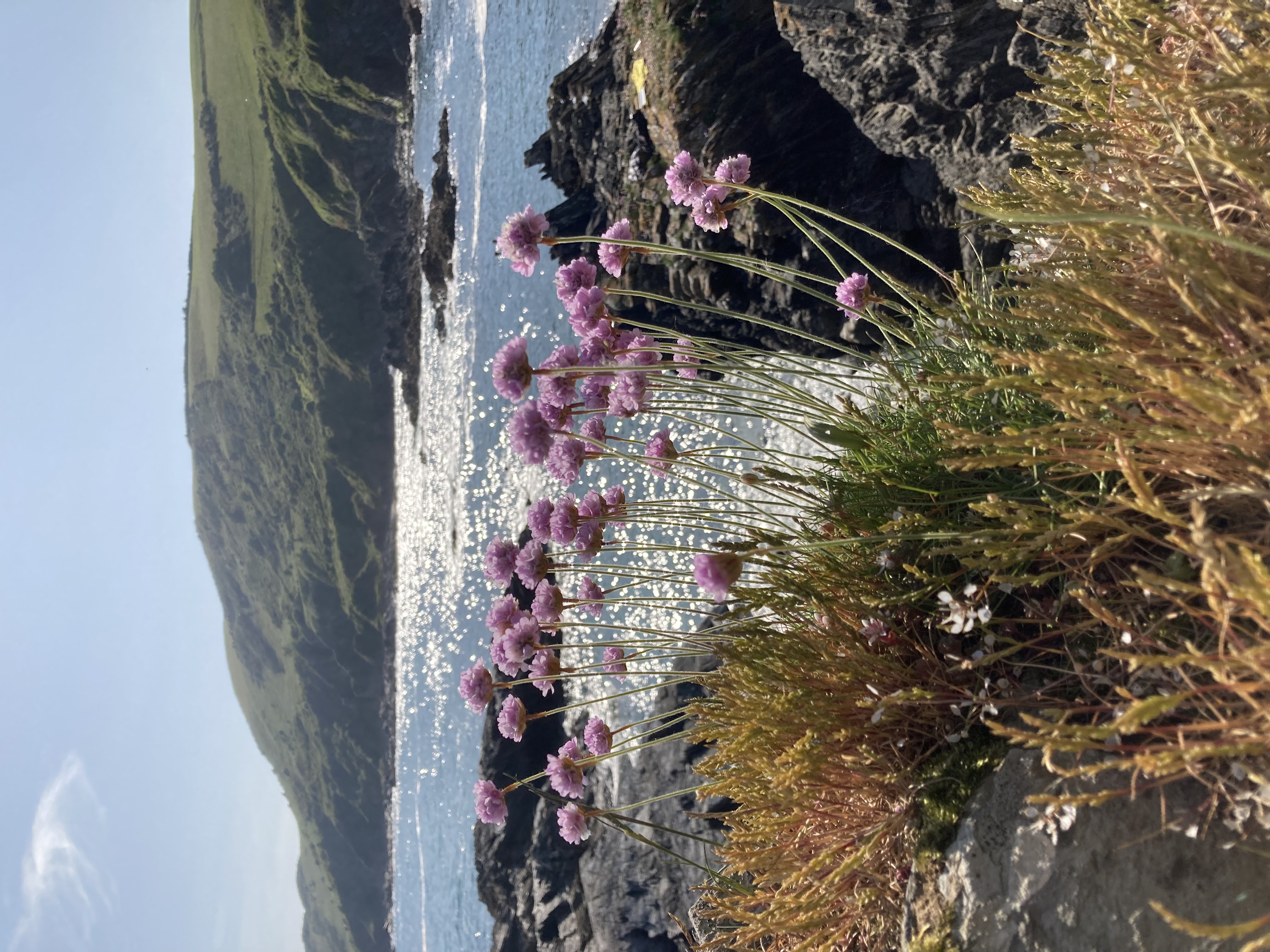
It was those days, primarily, that I had in mind at the beginning of autumn last year, when I considered purchasing a tiny boat I couldn’t afford from a man who lives in the village. I would rehearse the route I would take at its helm, down the creek, onto the bigger creek, out into Fowey harbour, then around to the cove. The village is called Lerryn and provided some of the inspiration for Kenneth Grahame’s The Wind In The Willows. Grahame stayed in nearby Fowey in 1907 - the year before the book’s publication - and began to write the opening chapter directly after an exploration of the River Lerryn and its surrounding woodland. If you Google “Lerryn”, you will find that this is the thing the place is most famous for, jointly with the fact that in the early years of this century the kazoo player from Mungo Jerry, composers of the noxious 1970 drunk driver anthem ‘In The Summertime’, was involved in a highly publicised altercation in the village’s sole pub after his former girlfriend moved in with the landlord. This is where Google is useful, since, in the version of the latter event that was described to us by our neighbours Bob and Philippa, as they’d heard it via the local grapevine, the pub landlord’s girlfriend had been stolen by Mungo Jerry, who Bob and Philippa had been led to believe was not a band but one prominently sideburned human man.
Bob and Philippa have moved now, which makes me sad since nobody threw herself more relentlessly into the welfare of the area’s wildlife than Philippa did, and - despite its immense natural beauty - it is an area where you often sense the prevailing view is that wildlife should be suppressed and controlled as much as encouraged. To see Philippa in her garden at dusk, surrounded by the numerous hedgehogs she fed, was to see someone happily inside her own personal adaptation of The Wind In The Willows. I wish I’d never told her about the huge badger I saw dead on the lane leading up to the solar farm on the east side of the village because, in her mind, that was obviously another of the many badgers that she personally could have helped and hadn’t. “Awful,” she said. “Is it still there? If it is, I’ll go and get it for the foxes.” In me, I think she saw a younger version of some parts of herself: someone still, somehow, finding ways to blank out rural England’s rampant animal death and get on with his day but who could potentially crack at any moment. When she left, she asked me to worm a fox. What could I do, to be the same good neighbour that she had been to us? I said yes. Obviously I didn’t wrestle the fox to the ground and force a worming pill down its throat. But a worming pill placed in my care by Philippa has since been wedged into a Co-op chicken thigh I left out and has possibly been eaten by the fox, or possibly one of Philippa’s army of hedgehogs, or one of the farm dogs who invade our garden in the deepest depths of night and howl at the moon. The fox might well now be wormed. I suppose nobody will ever know, for sure, perhaps not even the fox itself.
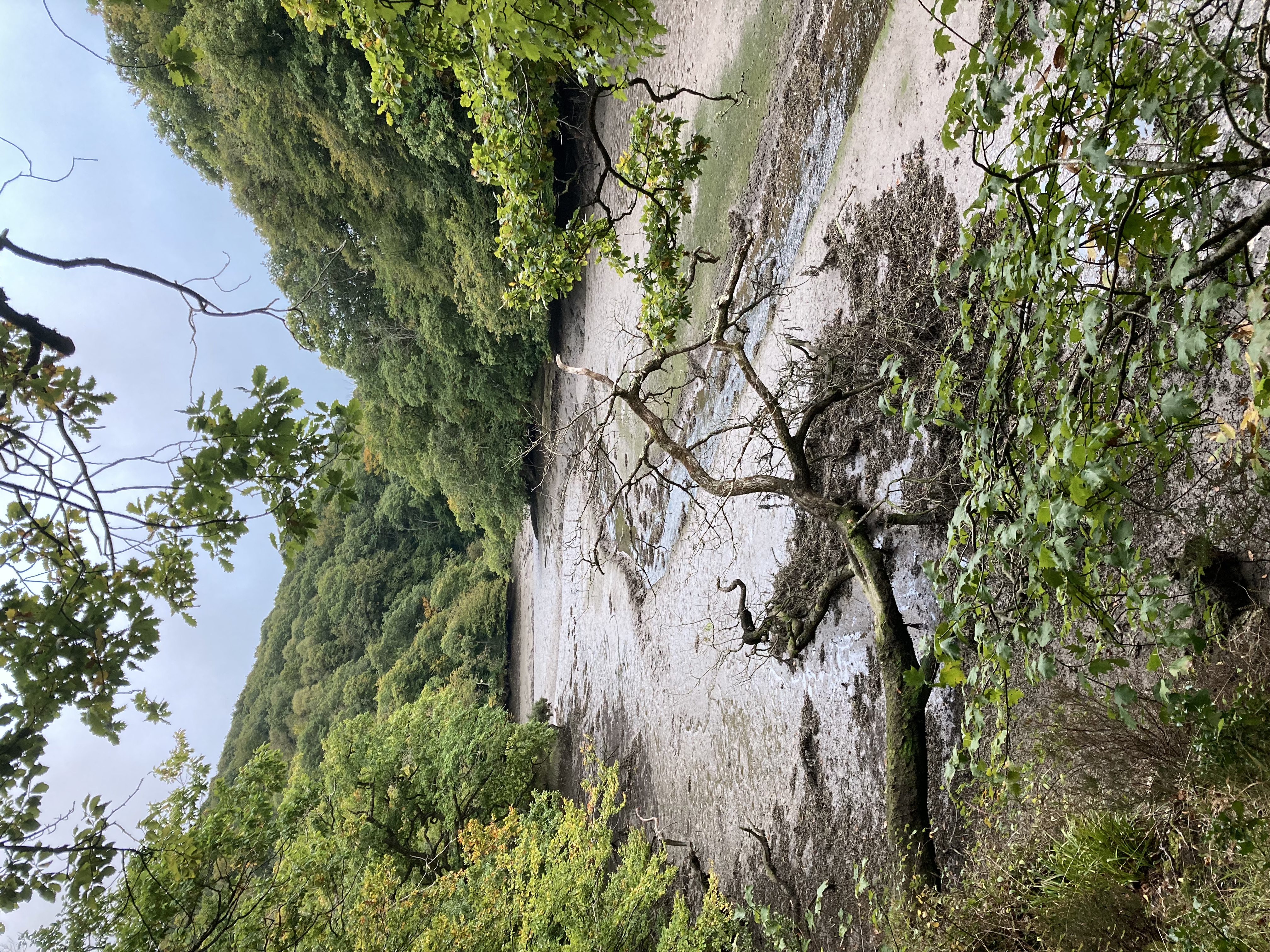
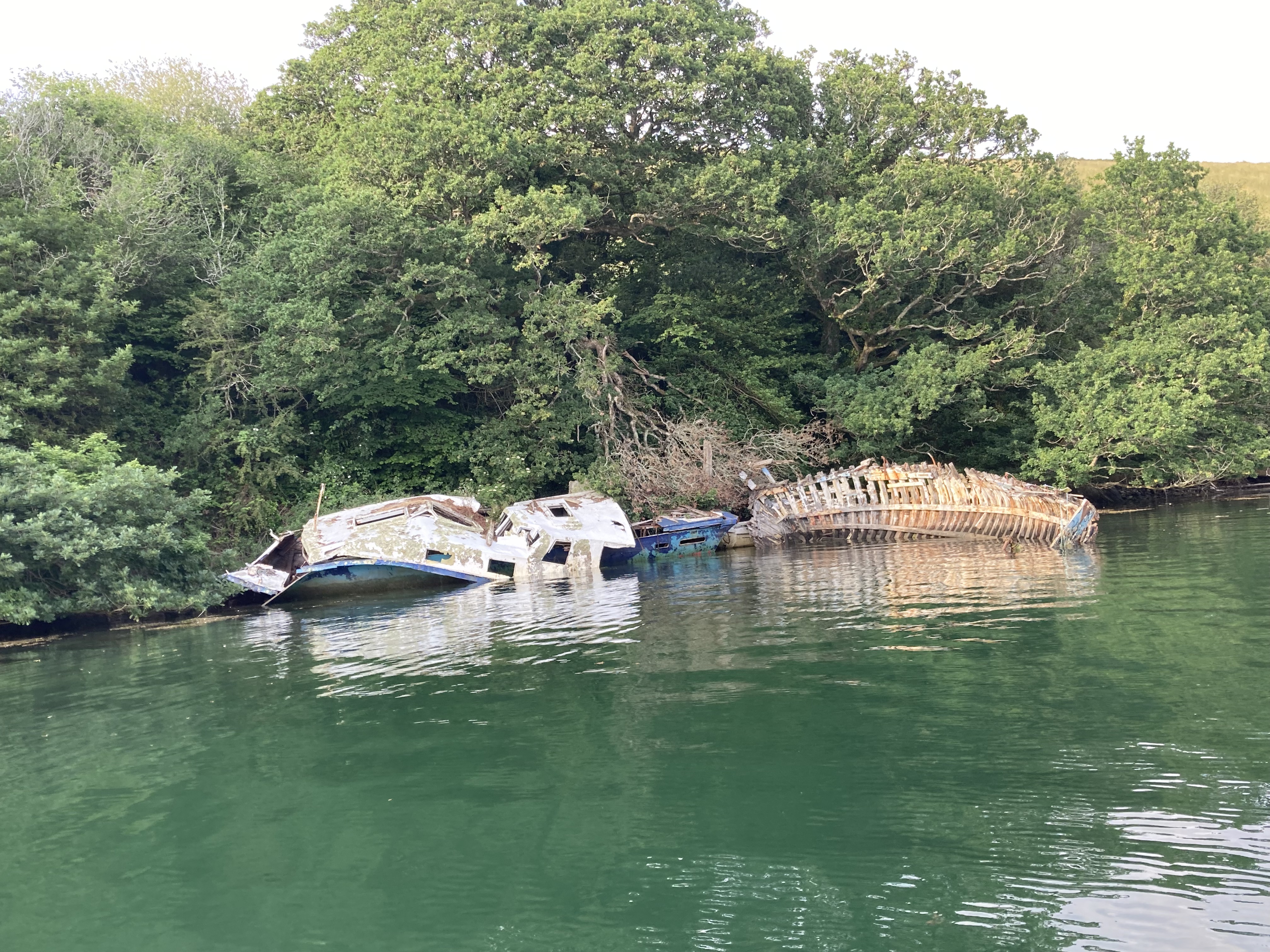
If you turn right just before the pub where all 23 past members of Mungo Jerry didn’t once turn up with their kazoos and banjos and musical jugs and carry away the landlord’s girlfriend on their shoulders, you’ll come to the place in Lerryn where the boats are moored. Here still sits the mud-caked two-seater that I didn’t buy last year . As I look at it, less than 48 hours before I am due to move away from here, I see an unlived life: an unlived life where I chugged along a small Cornish river nowhere near as many times as I’d hoped to, including a couple of times when I’d had to call on some people more boaty and experienced than me to haul me out of some deep mud, then had to quickly find a way to sell that boat, probably for less money than I’d purchased it for. You need to choose your sailing times extremely carefully here, because the channel gets very low, very quickly. Even when the tide was high on a perfect evening back in June and Bob kindly took a few of us over to the Fowey Estuary in his boat, he charted his course very carefully, using some complicated-looking navigational equipment, and was very particular about our wearing of life jackets. The relaxation part was all ours, as passengers: we were the ones who drank the wine and admired this new perspective of the Wild Wood cascading up either bank - the one which, as Rat puts it in The Wind In The Willows, shields you from the “Wide World” which “doesn’t matter” - where I had walked so many times, and heard unfathomable bird sounds and, perhaps most unfathomably of all, one evening early last winter, seen a woman scuttling through the trees, disguised as a sapling. Friends of Bob and Philippa passed us, toasting us with their own wine glasses. It was one of those summer evenings which can con you into believing this is the default state of life here. But what has perhaps stayed with me most from it is something we saw as we turned into Penpol Creek, one of the Fowey Estuary’s tributaries: a graveyard, not for people but for boats, some of them still full bodied, some of them with their ribs picked clean by time and now looking remarkably piscine. A beautiful, haunting place, and one that put me in mind of another part of that unlived life: the part where I sailed my little boat out onto the open sea, and around the corner, towards my favourite cove, and another wave - much much bigger than that really quite unremarkable one that split my nipple - hurled it onto a much bigger rock, which snapped it in two. I don’t think this was me being morbid. I think it was me being someone who has spent enough time in the sea, and the estuaries that spill out into it, to know not to underestimate their tetchiest moods.
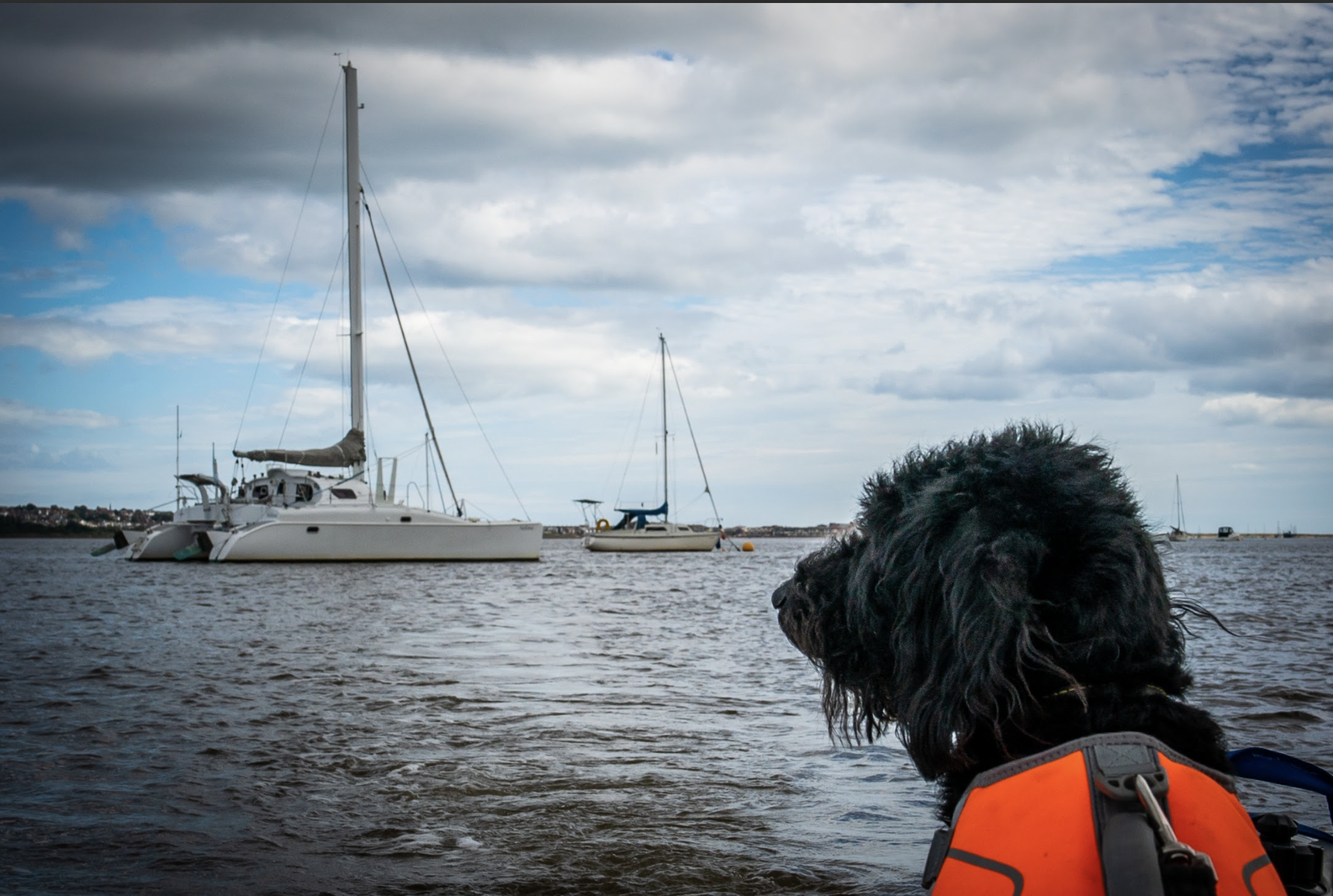
A couple of weeks later, on the most soggy and dismal day a British summer can brew up, my friend Ben and I took a dingy out into the Exe Estuary with Simon Tytherleigh and Simon’s dog Bertie to Simon’s boat, Nellinui. Simon is a born problem solver who used to delight in making fake bodies spurt blood and turning his hand into Frankenstein’s brain in his old job in make-up special effects - including on the TV show Casualty - and to see Nellnui is to witness arguably the most impressively solved problem of his life: how to build a ten metre catamaran from scratch. The project began in a farmer’s field, ended in a quay on the River Dart and took him a total of eight years. Within Nellinui’s extremely unshoddy looking body can be found all sorts of unexpected and ingenious structural components not performing their usual function: a car stereo, flexible domestic soil pipe connectors, and even some plastic cat food bowls that Simon has used to cover up the bolts in the ceiling. It feels, as soon as you you climb aboard, utterly redoubtable, has sailed across the Channel numerous times, and even starred - along with Simon himself - in the short 2019 horror film All That Remains, directed by Ben. But now, after only as much time sailing it as he spent building it, Simon is selling it. “I don’t think we’re very good at endings as humans,” he told me. “Sometimes it’s ok to just walk away from something and accept it’s done.”
Simon recalled Nellinui’s maiden journey, down the Dart and out into the ocean. “The enormity of what I’d done suddenly came home to me. I was a gibbering wreck: ‘How can I expect this homemade thing to hold together in these conditions?’ I asked myself. The sea is the most testing thing you can imagine. I thought, ‘I’m just going to throw it all away’. Slowly it dawned on me that things weren’t falling apart. Instead of concentrating on the 5 percent that wasn’t working, I started concentrating on the 95 percent that was.” Simon struck me as someone who loved discovering the benefits of looking at a situation from an angle that contradicts and transcends the obvious, which makes total sense, since being on a boat is all about discovering the benefits of looking at a situation from an angle that contradicts and transcends the obvious. From a seafaring vessel you see this island we live on in a new way, get a greater, deeper sense of what it really is. And then you realise: once, this method of travel wasn’t primarily a leisure pursuit guarded over by a moneyed elite. It was part of the fabric of everyday life. For many working people, it was the normal angle.
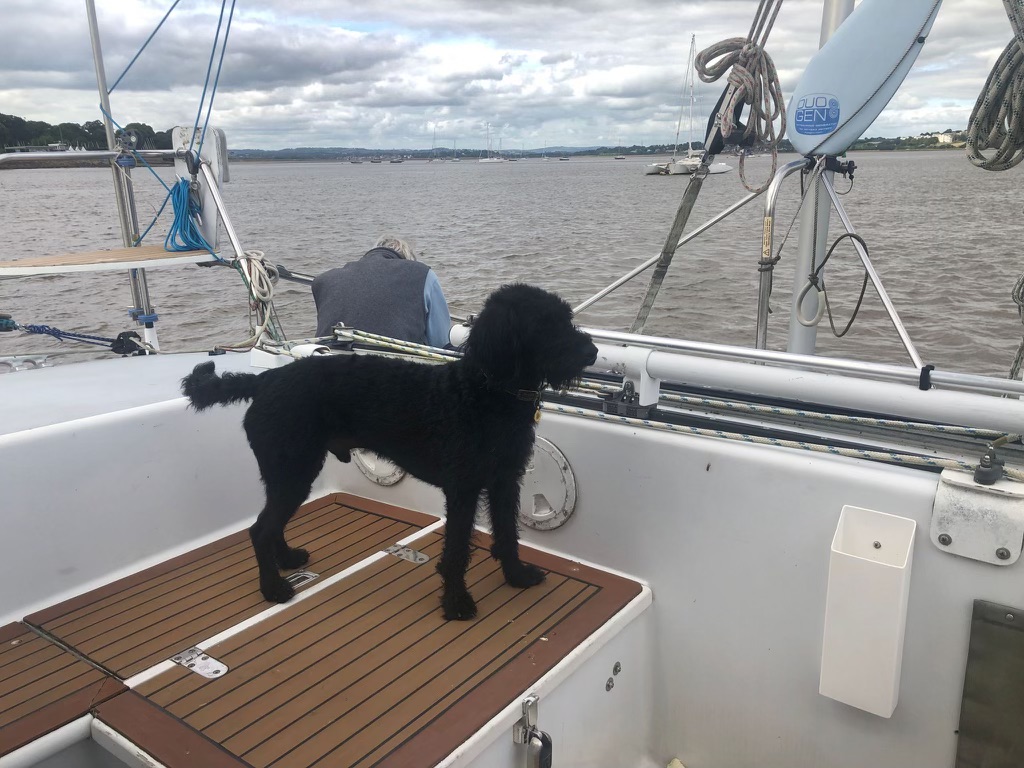
An early method of navigation on ships, especially useful in fog, particularly prior to 1759 when the Yorkshire clockmaker John Harrison worked out how to calculate longitude by inventing the chronometer, was something called “sounding”: a length of lead would be dropped into the water, filled with tallow, and the tallow would pick up a sample of the sea bed, which would be cross referenced to the navigational chart and give the crew a better idea of where they were. Even though my favourite local Cornish cove is only 80 miles from Starcross, where Simon’s boat is moored, I’m sure samples of the seabed from each place would prove vastly contrasting. Whereas the water on the beaches flanking the mouth of the Exe always seems tinged with the red of the nearby cliffs, the sea of the area directly east of Fowey always feels at least a tad phosphorescent, even on its murkiest days. Some people think I have been mad to swim in it, at chilly, irritable times in March or October, but what I do is very tame in the grand scheme of adventures in the realm of Poseidon. I’m more careful than I once was and a stronger swimmer than I once was. Yet sometimes, when I look back at the shore, and it suddenly seems unreachable, and I can feel the tips of my fingers turning purple, the enormity of the sea will hit me, and I will be overwhelmed by a mental picture of a vastly exaggerrated version of my predicament. “What would it be like, being in infinitely colder water than this, amongst infinitely bigger waves, with no land in sight?” I wonder.
I am running out of time to do all the things I want to do. We all are, constantly. Simon was my age when he began to build Nellinui. He’s in his early 60s now. The part of me that wants to become a person who can sail a boat, that loves the rich boat lexicon threaded through the phenomenal books of my favourite travel writer Jonathan Raban, that loves the idea of writing from all the new angles of life that a boat will permit me to see from, the part that trusts Rat’s statement in The Wind In The Willows that “there is nothing - absolutely nothing - half so much worth doing as simply messing around in boats” lost in its battle with the part of me that wants to do too many other things with my remaining hours on the planet. Watching variations of yourself float away into the past is a feature of regular relocation and, as I prepare for my latest move, I watch this more watery variation disappear around the bend of Lerryn’s ridiculously picturesque creek. I have lived in a lot of watery places but the salty kind has been such a theme here, I feel like I’m moving further inland than I actually am, which, being still on the South West Peninsula of the UK, of course can’t technically be that far inland at all.
My final days here have been filled with a strange ambivalence: a desire to wring as much enjoyment out of the nearby coast as possible combined with a slowly accumulating dread about that very same stretch of coast. I think it’s partly a manifestation of the anxiety that comes before every house move, the ghosts of the more stressful ones in my past, mixed with an excitement about where I’m going - an intense need to make being there a reality - but it’s something else too. The audiobooks I’ve listened to recently, though not nautically-themed, have detailed an inordinate number of maritime disasters. On Thursday, while I drove to the beach, I heard an account of the capsizing of the Herald Of Free Enterprise near Zeebrugge in March 1987: the terrifying details about the temperature of the water, the lovers whose bodies were found by divers amidst the wreckage, still locked in a final embrace, months later. An hour after that, I watched - nervously poised for action - as a group of young swimmers almost let their terrified spaniel, tied to a rock, get washed away by the incoming tide. Then there was that scary dark shape in the water, in the mist, that made me rear up on the day where the sea and the surrounding cliffs felt like a disorientating and unfamiliar arrangement of smudges. “That will do now,” I said to myself, trying, like Simon, to be better at endings. But I went again, very briefly. There was still just time, between all the packing and organising. You might say I was asking for it. Alone and thirty yards out from any rock I could have grabbed, my foot spasmed in that violating kind of cramp which feels like the bone that provides the most significant help in making you mobile is sticking out of its natural place at some Satanic angle. Mercifully, the water was calm and not very chilly. It’s all fine, I thought. You have salt on your side. It is just a matter of floating and waiting it out. But when the pain had subsided and I frontcrawled cautiously back to shore, a weirdly dramatic relief set in. Looking out at this place for the last time as a local, I half expected to see a shedded skin, floating on the tide, in the approximate shape of me. All I’d done was pop to the beach on a pleasant sunny evening, yet I walked to the car feeling like some kind of rare survivor, rolling uphill in a bubble of good fortune.
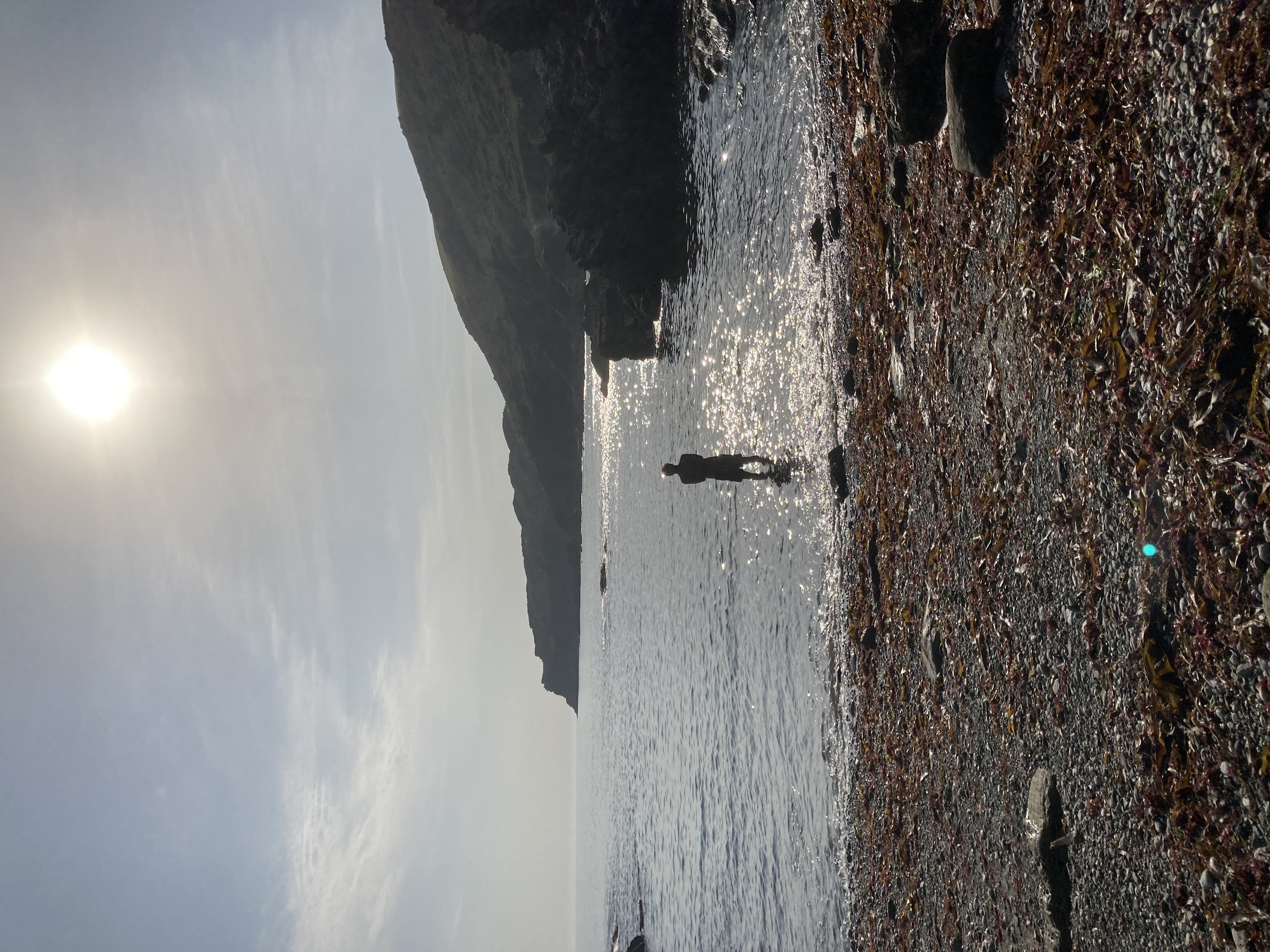
Thank you to Ben Tallamy for the photos of Nellinui and Bertie.
You can order my latest book, Villager, with free worldwide delivery here.

